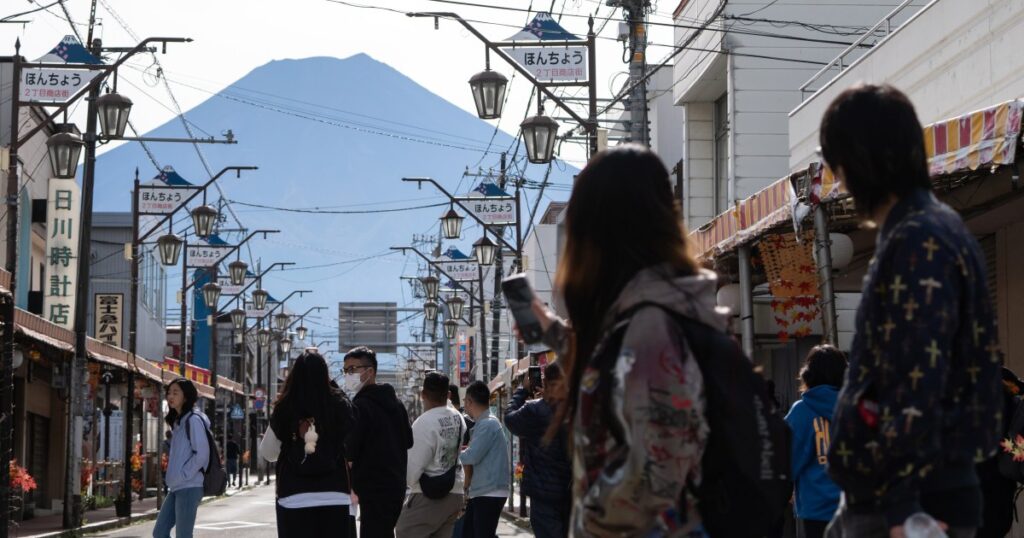
Japanese tourism stocks have taken a significant hit following a travel advisory issued by China, warning its citizens against visiting Japan. This advisory comes in the wake of escalating diplomatic tensions between Tokyo and Beijing, triggered by recent comments from Japanese Prime Minister Sanae Takaichi about potential military intervention in Taiwan.
The announcement from China’s Ministry of Foreign Affairs on Friday marked a sharp escalation in the dispute, citing increased risks to Chinese citizens’ “personal safety and lives” as a result of Takaichi’s remarks. As Japan’s stock market reopened on Monday, the impact was immediately felt, with shares in the tourism sector experiencing notable declines.
Market Impact and Economic Concerns
Among the hardest hit were department store group Isetan Mitsukoshi, which saw a drop of over 11 percent in afternoon trading, and its competitor Takashimaya, which fell by approximately 5 percent. Japan Airlines experienced a 4 percent decline, while Fast Retailing, the owner of Uniqlo, dipped by around 5 percent. Cosmetics giant Shiseido saw its shares plunge by 9.5 percent.
China represents Japan’s largest source of foreign tourists, accounting for nearly a quarter of the 31.65 million arrivals in the first nine months of this year, according to data from the Japan National Tourism Organization. The potential decrease in Chinese tourists poses a significant threat to Japan’s economy, which has already shown signs of contraction.
Ryota Abe, an economist at Sumitomo Mitsui Banking Corporation, noted, “Even if the number of visitors decreases 30 percent because of the heightened tensions, the negative impact will be around 0.1-0.2 percent on Japan’s GDP.”
Japan’s economy contracted by 0.4 percent in the third quarter, marking its first decline in six quarters, according to official data released on Monday. The prospect of further economic strain looms large if Chinese tourist arrivals continue to dwindle.
Diplomatic Efforts and Historical Context
Japan’s Chief Cabinet Secretary Yoshihide Suga addressed the situation in a regular news briefing, criticizing Beijing’s travel warning as inconsistent with the mutually beneficial relationship both nations have historically pursued. Suga emphasized that Tokyo had requested “appropriate steps” from China to de-escalate the situation.
In a bid to ease tensions, Japan’s top official for Asia Pacific affairs, Masaaki Kanai, traveled to China on Monday. Kanai is set to meet with his Chinese counterpart, Liu Jinsong, in Beijing, where he is expected to clarify that Japan’s security policy remains unchanged despite Takaichi’s comments on Taiwan.
Japan has long viewed China’s ambitions regarding Taiwan with concern, given the island’s proximity to Japanese territory and its strategic location in key maritime trade routes. Historically, Taiwan has been a contentious issue, with China considering it a part of its territory and pledging to “reunify” it with the mainland, by force if necessary.
Future Implications and Regional Stability
The current diplomatic spat underscores the delicate balance of power in East Asia, where historical grievances and territorial disputes often flare into broader geopolitical issues. As Japan seeks to navigate these tensions, the economic repercussions of reduced tourism from China could serve as a catalyst for further diplomatic engagement.
Looking ahead, the outcome of Kanai’s discussions in Beijing will be closely watched by both regional and international stakeholders. Any resolution could pave the way for renewed stability and economic cooperation, while failure to reach an understanding could exacerbate tensions and further impact Japan’s economic outlook.
As the situation develops, both Japan and China will need to weigh the economic and political costs of their current standoff, with the hope that diplomacy can prevail over discord.







